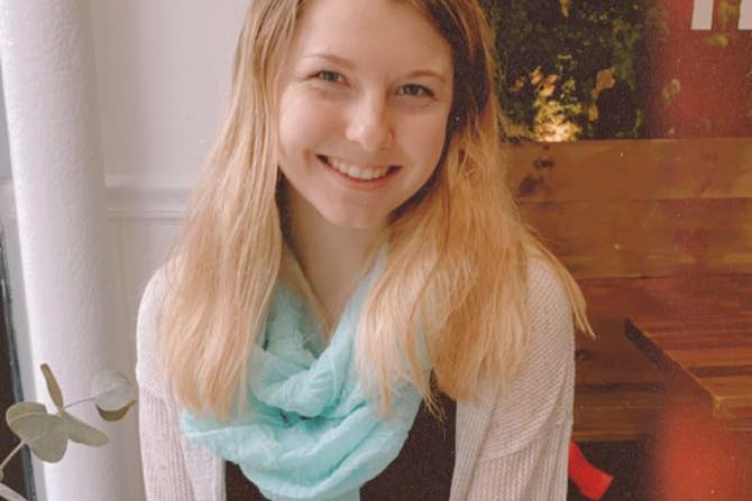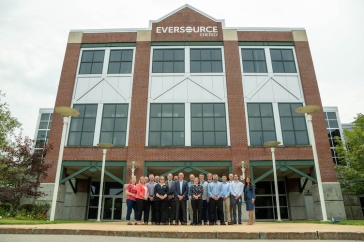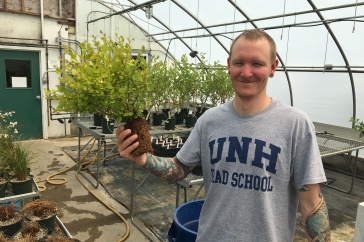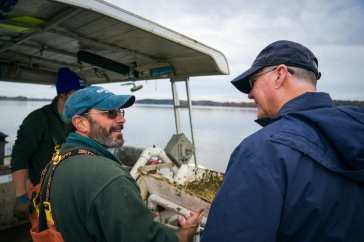
Grace Stott’s interest in nutrition started in middle school. That’s when she knew she wanted her future to be in food. She thought that meant she’d be in the culinary world, where she hoped to make healthy eating as important as flavor. Then in high school, she learned there was an actual field known as nutrition and found her path.
Earlier this month, Stott graduated with a dual degree in nutrition and ecoGastronomy. In the fall, she enters the nutrition program’s fifth-year master’s program.
“I grew up in a health-conscious family and learned the importance of good nutrition early on,” Stott says. “I always knew I wanted to do something that brought health and food together.”
“I think a connection to our food and understanding its journey from farm to fork is vital, and I want to a part of the movement to improve it.”
And she knew she wanted ecoGastronomy to be part of that. When UNH launched the food studies program in 2008, it was the first of its kind in the country. The program seeks to foster healthier and increased sustainable food practices while reducing the impact production has on the environment.
“With nutrition, we are commonly thinking at the molecular or physiological level, so taking time to step back and look at the macro and systems level is both valuable and interesting. EcoGastronomy complements nutrition so well and if there was the option for it to be my primary major, I would do it in a heartbeat,” Stott says. “I think a connection to our food and understanding its journey from farm to fork is vital, and I want to a part of the movement to improve it.”
Stott has worked on a farm, spent a summer working in a school lunch program and volunteered at a food pantry. Then there are the nutrition internships, at Phillips Exeter Academy in Exeter, New Hampshire, Frisbie Memorial Hospital in Rochester, New Hampshire, her local gym and Healthy UNH.
While studying abroad last year, she discovered a new way of thinking about food. In Italy and other countries she visited, Stott found what she described as a more relaxed and simplistic relationship with food, one that placed a high value on food origins and food systems.
“Since before I entered college, the concept of food insecurity, both domestically and globally, has interested me. I actually wrote my college essay on the topic,” the Lebanon, New Hampshire, resident says.
Stott has been employed at The Waysmeet Center since her freshman year, working in the food pantry and with food rescue efforts. She writes a blog for Healthy UNH, volunteered at the Fueling Station, a snack bar located at the Field House, and is a member of the UNH Nordic Ski Club.
Next fall Stott starts as a LEND (Leadership Education in Neurodevelopmental Disabilities) trainee, a paid position through the UNH Institute on Disability that prepares future leaders in maternal and child health, specifically in the disability setting.
“I am someone who is always seeking new opportunities that will further my education and knowledge, and after hearing about the program, I immediately knew I wanted to do it,” Stott says. “I was drawn to LEND due to my interests in policy and research, which are two of the focuses through the program. I am really excited to explore another sector of the health field that I have not been exposed to previously.”
With all of her interests, Stott isn’t sure yet if, after she completes her master’s degree, she will go on to take the test to become a registered dietitian and so will continue to explore other possible career options.
“I like finding experiences off the beaten path,” Stott says. “There can sometimes be this stereotypical mold that we are corralled into in terms of experience, but I’d rather find things I am interested in that push me out of my comfort zone.”
-
Written By:
Jody Record ’95 | Communications and Public Affairs | jody.record@unh.edu
















































